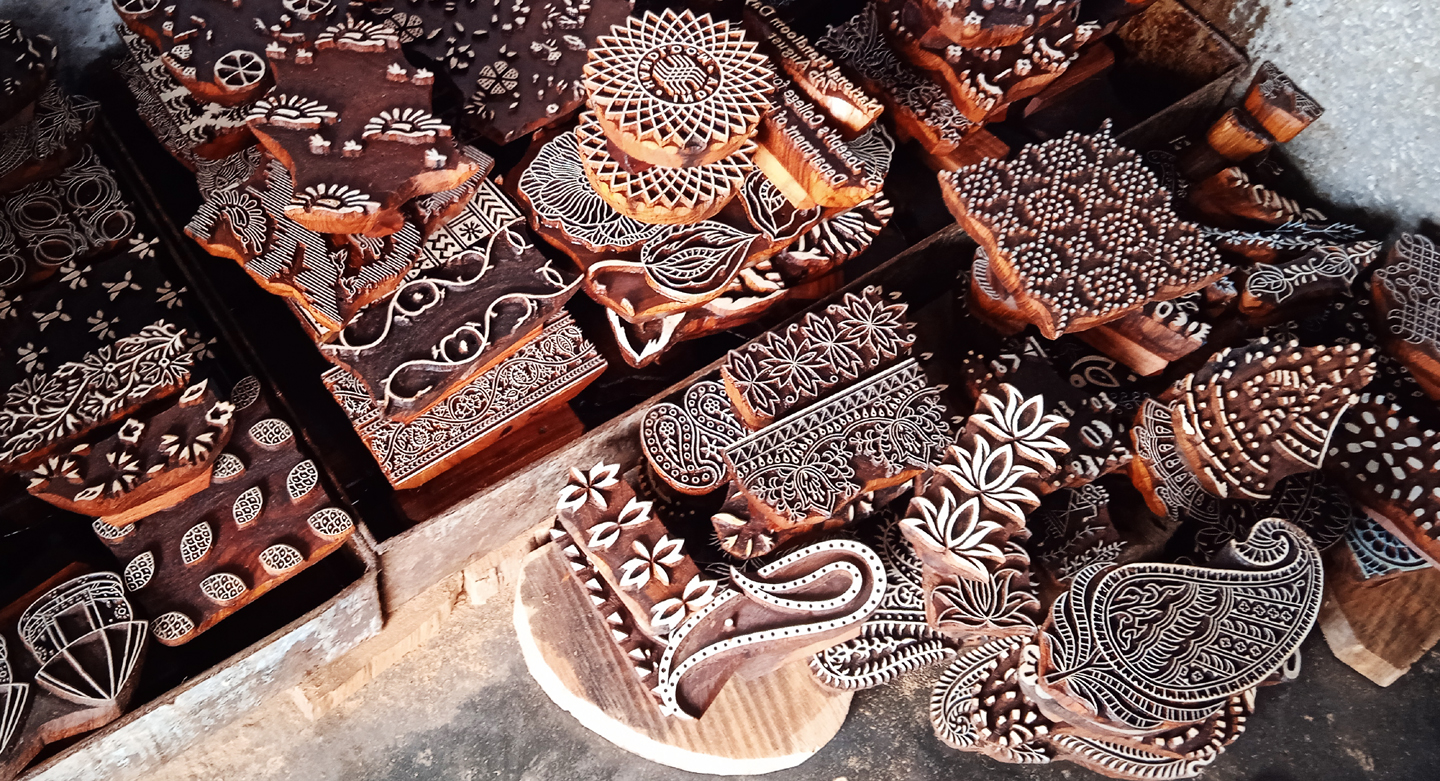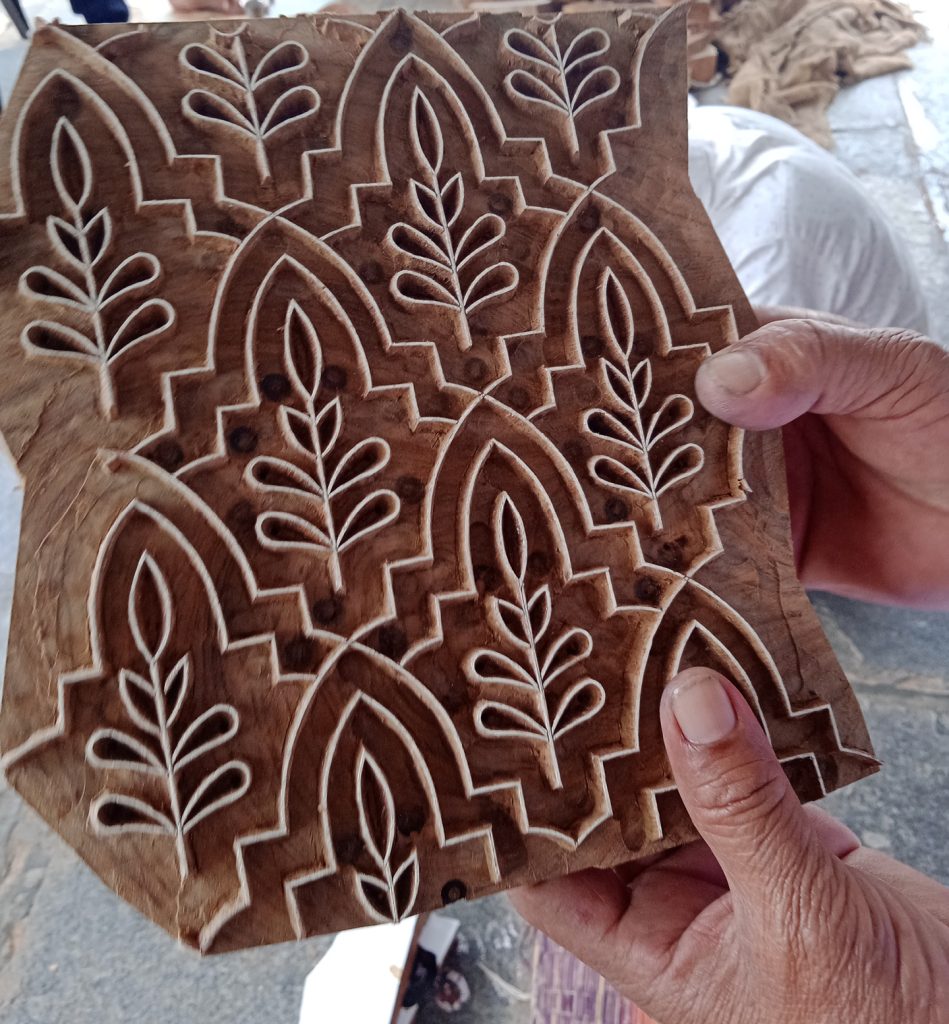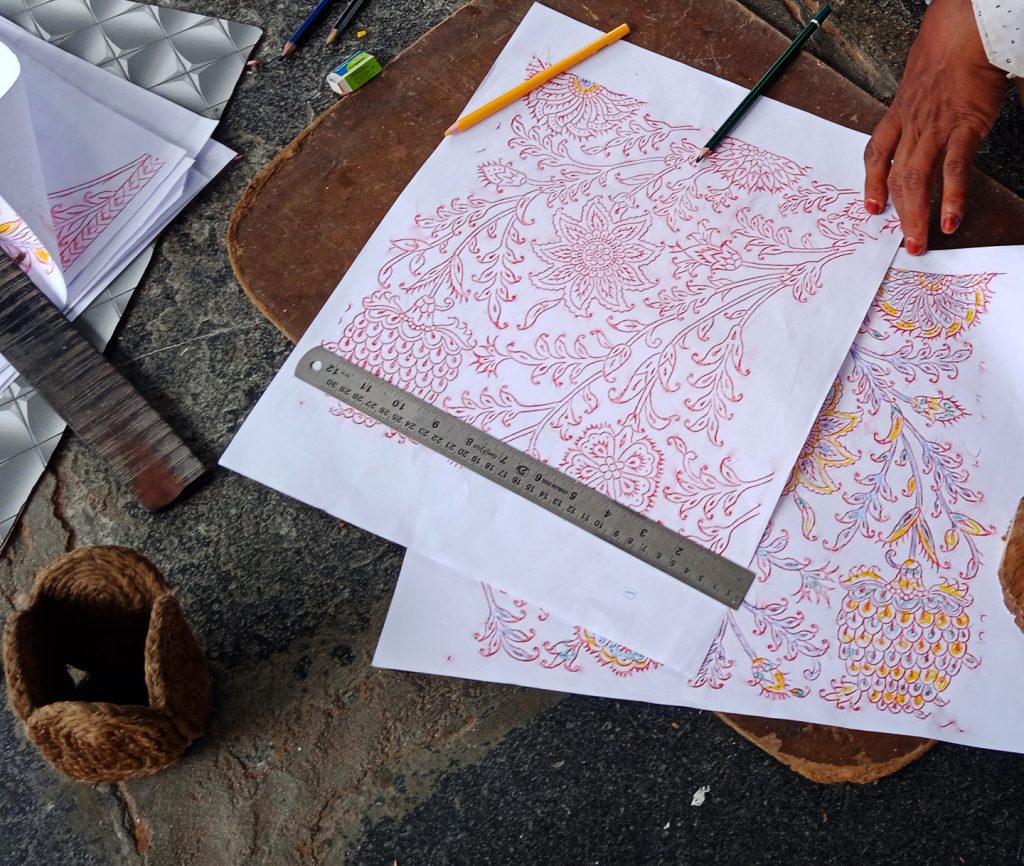
Pedana is a tiny village in Andhra Pradesh's Machlipatnam division. The region is well-known for its Pedana Kalamkari, a classic hand block printing technique. The town of Machlipatnam existed during the Satvahana Period in the third century BCE and was known as Maisolos in Ptolemy's time. In the past, this location served as a port. Due to its popularity among Roman traders, Muslin served as a significant source of money for the community. A great level of development was attained by the art of woodblock printing in several regions of east Asia. In the golden age of T'ang civilization, between 712 and 756, the Chinese are credited with creating xylographie (woodblock) printing, according to historians (Unesco.org). The Pedana Kalamkari or the block printing evolved with the patronage of the Mughals and the Golkonda Sultanates. In the block printing of Pedana style, the outline drawing is carved on wooden blocks in the, which are subsequently utilized to print on fabrics. Pedana block print production is carried out in karkhanas (commercial workshops), where block making, washing, and printing take place simultaneously, as opposed to handpainted kalamkari, which was a smaller setup specialized as an intergenerational craft. Pedana kalamkari received a Geographical Indications (GI) tag in 2013.

